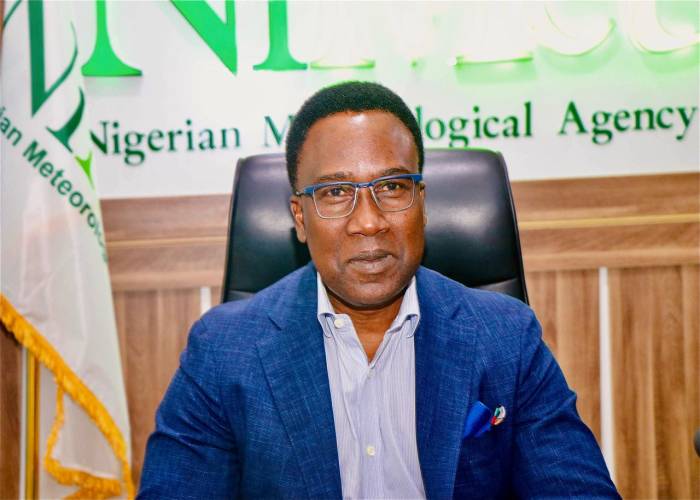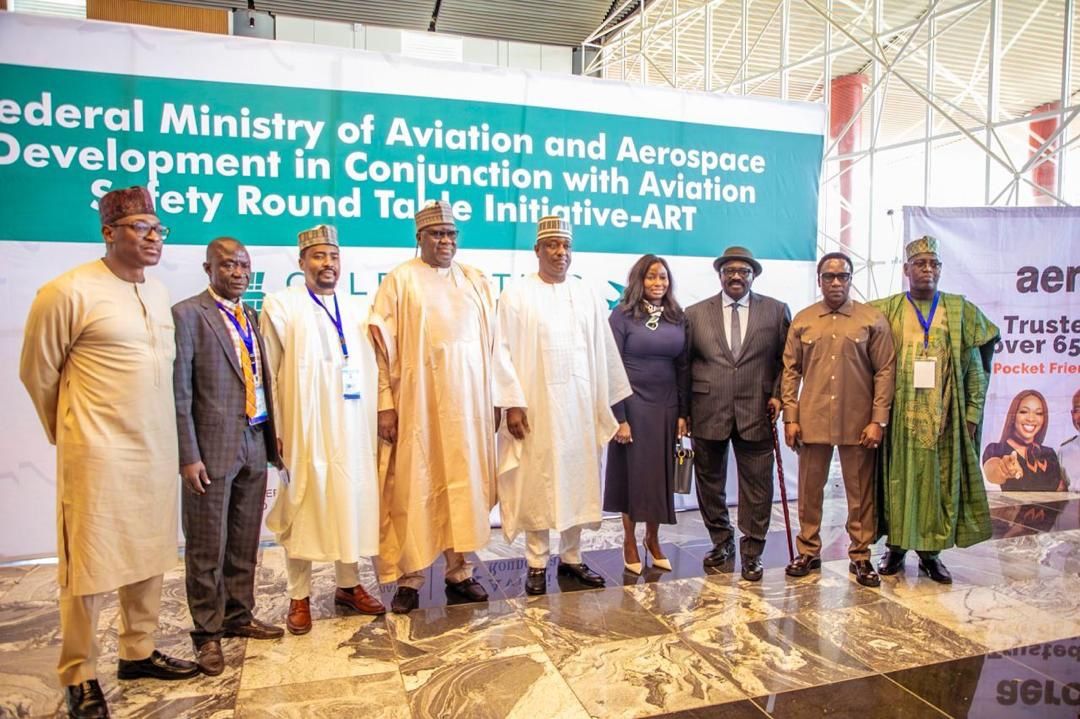The Nigerian Meteorological Agency (NiMet) is a Federal Government of Nigeria agency charged with the responsibility to advise the Federal Government on all aspects of meteorology. NiMet is tasked to project, prepare and interpret government policy in the field of meteorology; and to issue weather (and climate) forecasts for the safe operations of aircrafts, ocean going vessels and oil rigs. NiMet is also responsible for monitoring air quality and providing information to support environmental policies and public health initiatives across the country.
However, report from a nationwide audit of NiMet's air quality monitoring stations published at nimet.gov.ng has revealed troubling if not scandalous findings. The audit which was commissioned in February 2024 by NiMet management headed by the DG/CEO, Prof. Charles Anosike, concluded that; “NiMet’s air quality monitoring stations nationwide are in a deplorable state, jeopardizing the agency's ability to fulfill its critical mandate effectively”.
The comprehensive audit exercise aimed to evaluate the operational status and condition of seven critical air quality monitoring stations strategically located across the country in Sokoto, Kano, Maiduguri, Yola, Enugu, Lagos, and Abuja. These facilities, representing a substantial financial investment by the agency, are pivotal in monitoring air quality and providing essential data to support environmental policies and public health initiatives nationwide.
The leader of the audit team, Mrs Olumide Olaniyan, the General Manager, Air Quality Monitoring Unit, reported that the findings of the audit exercise painted a profoundly concerning picture, unveiling the deplorable state of these stations with the exception of Sokoto which has just been installed and Yola where the installation is still ongoing.
The audit revealed that the current condition of the remaining five facilities is alarmingly appalling, jeopardizing their ability to fulfill their intended purpose effectively. The audit exercise shed light on the concerning reality that the air quality monitoring stations had not received the necessary attention and resources over the years by the past managements. This lack of proactive maintenance and resource allocation has hindered the stations’ ability to operate at their full potential, thereby limiting the agency's capacity to effectively safeguard public health.
For example, the report faulted the inability of the contractor at the Kano station to complete the installation for over 5 years after the contract was awarded, hence there has been no official handing over of the air quality station to NiMet by the contractor because the job has not yet been completed.
The Enugu station which became functional after complete installation in 2013 worked till 2015. All
MSS international/ MSA gas analyzers which measured CO, NO2, SO2 and PM10 and wind sensor were carried away by the contractor in January 2019 for servicing, repairs and upgrade, but never returned till date.
Summary of other issues noted in the report included ill conceived contracts, lack of contractor compliance and maintenance capability, and abandoned air quality stations etc.
Professor Charles Anosike, DG/CEO of NiMet, said that it was important that management conducted the audit to have firsthand knowledge of the state of equipment in the agency. “We have been mandated by the Honourable Minister of Aviation and Aerospace Development, Festus Keyamo, SAN, as part of the 5-point agenda set for Nigeria’s aviation sector to ensure strict compliance with safety regulations and continuous upward movement of Nigeria's rating by ICAO.
The findings of the audit of NiMet's air quality monitoring stations, though shocking, will help management to determine areas to channel resources”.
As noted in the audit report, a significant challenge plaguing many of NiMet's air quality monitoring stations is unreliable power supply. This has resulted in the instruments being highly susceptible to frequent malfunctions and breakdowns, due power outage. The air quality monitoring stations have faced significant challenges due to unreliable power supply and inadequate backup systems. Persistent power supply instability and the lack of effective backup systems have repeatedly disrupted the stations' operations, hindering their ability to collect and transmit data seamlessly. These power-related issues have also caused substantial damage to the sensitive monitoring equipment installed at the facilities. The stark inadequacy of backup power systems, which should serve as a contingency measure, has left the stations defenseless against the consequences of power supply disruptions.
As a result, the air quality monitoring network has experienced extended downtimes and increased risks of equipment failure, severely compromising the reliability and continuity of the data collection process. Addressing these power-related challenges is crucial to ensuring the effective and uninterrupted functioning of the air quality monitoring system.
While the report has presented a damning picture of the state of NiMet’s air quality monitoring stations, it is for the present management to adopt a forward-looking approach to address the huge challenges, even though oversights by previous managements have undoubtedly led to the current state of the air-quality facilities.
By noting the challenges identified in the audit and implementing a comprehensive strategy to revitalize and strengthen the air quality monitoring network, the agency can regain its ability to provide reliable and accurate data for evidence-based environmental policies, and contribute to sustainable development initiatives across the nation.
The audit report also presents an opportunity for the current leadership of NiMet to prioritize the restoration and modernization of these vital facilities, ensuring that the investments made are not rendered futile. It is of the view that through a renewed commitment to proactive maintenance, resource allocation, and collaboration with stakeholders, the agency can overcome these obstacles and reaffirm its role as a crucial contributor to environmental protection and sustainable development efforts across the country.
The report however acknowledges that the new management has shown keen interest in air quality monitoring in Nigeria, and has shown a willingness to address the deplorable state of NiMet's air quality monitoring network. The DG /CEO, Prof Charles Anosike, who is only 8 months in office and the management team have taken steps to ensure the upgrade and replacement of these equipment to guarantee availability of reliable and comprehensive air quality data.
To support management’s efforts, the agency requires increased funding from relevant authorities to support equipment procurement, maintenance, and capacity-building initiatives. It is noteworthy that the present management has already started implementing some of the recommendations of the audit team.
The report recommends comprehensive training programs for personnel to enhance their skills in air quality monitoring. The agency is already doing this. It had in July 2024 organized a training programme for staff of its Air Quality Monitoring Unit in air quality monitoring. The training which held at the WMO Regional Training Centre, Oshodi, Lagos, covered crucial aspects of modern air quality monitoring techniques, with a focus on leveraging satellite and in-situ data from Reference Grade Monitors and low cost sensors data for air quality monitoring and analysis.
It is hoped that the management of NiMet will implement the recommendations of the audit report, as it will help the agency to rebuild a robust, reliable, and sustainable air quality monitoring network across Nigeria, enabling it to fulfill its mandate, inform evidence-based policymaking, and contribute to a healthier and more sustainable environment for all Nigerians.
Babatunde Ajayi, a climate and environmental activist wrote from Lagos.














